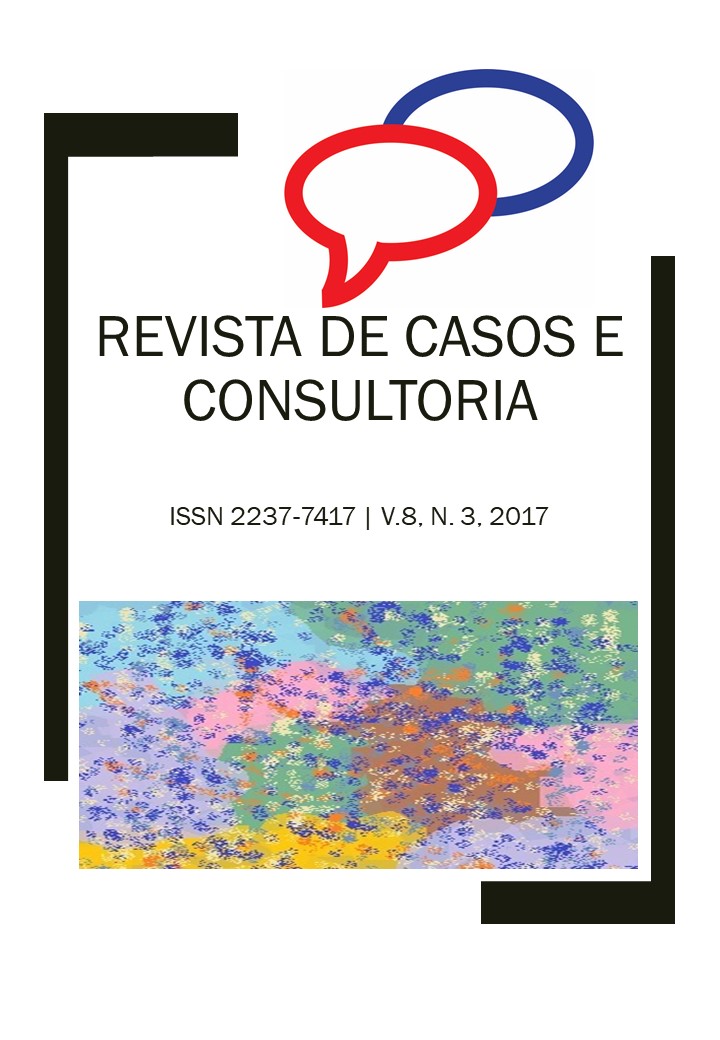APPLICATION OF CODE OF CONDUCT FOR SUPPLIERS OF COMPANIES
Keywords:
Suppliers. Code of conduct. Social responsibility. Sustainability. OrganizationsAbstract
This paper analysed the social responsibility as a conduct factor of the organizations. The discussion considers the contribution of ethics as a factor relevant to the business involv-ing the quality and productivity of enterprises. A major problem in relation to ethics is the “gap” (distance) between speech and business practice, i.e., the difference between what you preach and what you practice. So maybe the rules imposed on private institutions can contribute to social inclusion and sustainability issues facing the business. Through quali-tative analysis, quantitative data was found to facilitate the understanding of the studied object. According to the survey we can see the interest of companies to meet customer demands, but a practice focused on social responsibility is far from being established by management. These requirements are included in policies to meet contractual and labor laws in order to avoid legal problems. Among the eight companies surveyed it was verified that only 37% of them have been invested in the inclusion of social responsibility require-ments voluntarily, the other feel pressured by their suppliers, but they do not adopted these requirements yet.
Downloads
References
ARRUDA, M. C. C.; WHITAKER, N. C.; RAMOS, J. M. R. Fundamentos da ética empresarial e econômica. 4. ed. São Paulo: Atlas, 2009.
BOGDAN, R.; BIKLEN, S. Qualitative research for education: an introduction to theory and methods. Boston: Allyn and Bacon, 1992.
CABRAL, D. Uma realidade cada vez mais presente. Revista Administrador Professional, ano 34, n. 296, p. 29-29, fev. 2011.
CERVO, A. L. Metodologia científica. 6. ed. São Paulo: Pearson Prentice Hall, 2007.
DENZIN, N. K.; LINCOLN, Y. S. Handbook of qualitative research. Thousand Oaks: Sage, 2005.
DUARTE, G. D.; DIAS, J. M. A. M. Responsabililidade social: a empresa hoje. Rio de janeiro: Livros Técnicos e Científicos, 1986.
EISENHARDT, K. M. Building theories from case study research. Academy of Management Review, v. 14, n. 4, p. 522-550, 1989.
HAYATI, D.; KARAMI, E.; SLEE, B. Combining qualita-tive and quantitative methods in the measurement of rural poverty. Social Indicators Research, v. 75, p. 361-394, springer, 2006.
McCRACKEN, Grant. The long interview. 5th print. Newbury Park: Sage, 1991.
NAGEL, E. Filosofia da ciência. São Paulo: Cultrix, 1969.
NEVES, J. L. Pesquisa qualitativa: características, usos e possibilidades. Cadernos de Pesquisas em Administração, v. 1, n.3, 2º sem., 1996.
PALHARES. M. Quando a ética acompanha o lucro. Revista Administrador Profissional, ano 34, n. 299, p. 14-15, maio. 2011.
PASSOS. E. Ética nas organizações. 1. ed. 7ª reimpressão. São Paulo: Atlas, 2011.
SEIDMAN, I. E. Interviewing as qualitative research. A guide for researchers in education and the social sciences. New York: Teachers College/Columbia University Press, 1991.
SEVERINO, A. J. Metodologia do trabalho científico. 23. ed. São Paulo: Cortez, 2007.
SROUR, R. H. Ética empresarial. 3. ed. Revisada. Rio de Janeiro: Elsevier, 2008.
TRANSPARÊNCIA E CORRUPÇÃO/ TRANSPARENCYINTERNATIONAL. 1993. Disponível em: <http://www.transparency.org>. Acesso em: 20 ago. 2011.
YIN, R. K. Estudo de caso: planejamento e métodos. 3. ed. São Paulo: Bookman, 2003.

 Português (Brasil)
Português (Brasil) English
English Español (España)
Español (España)